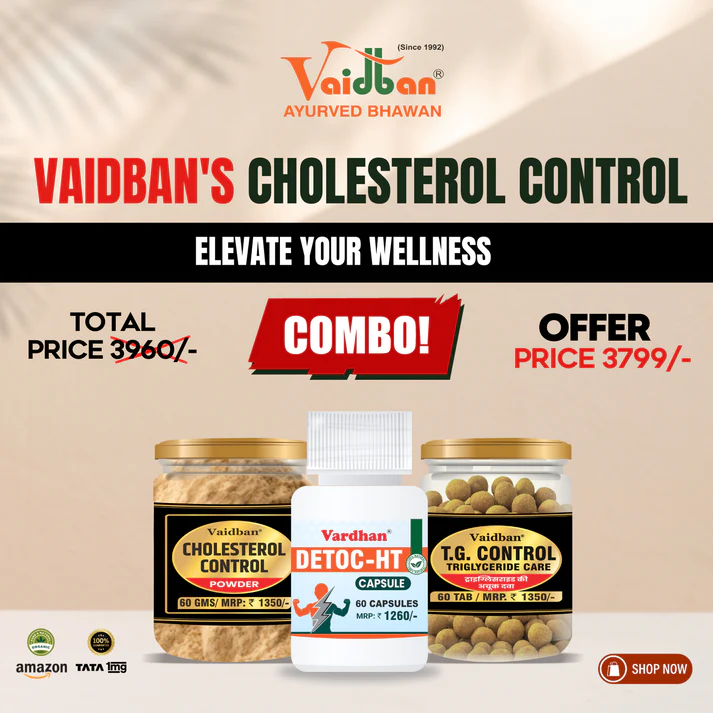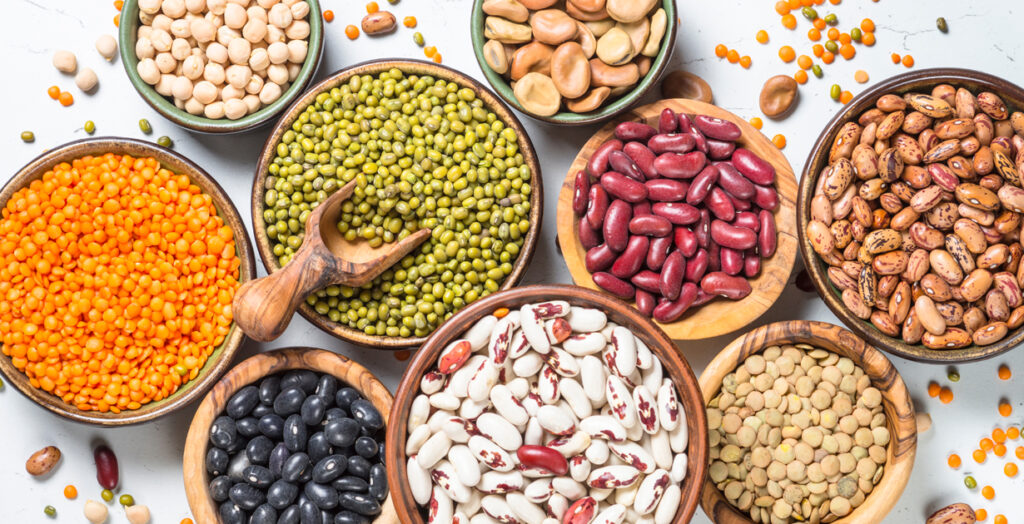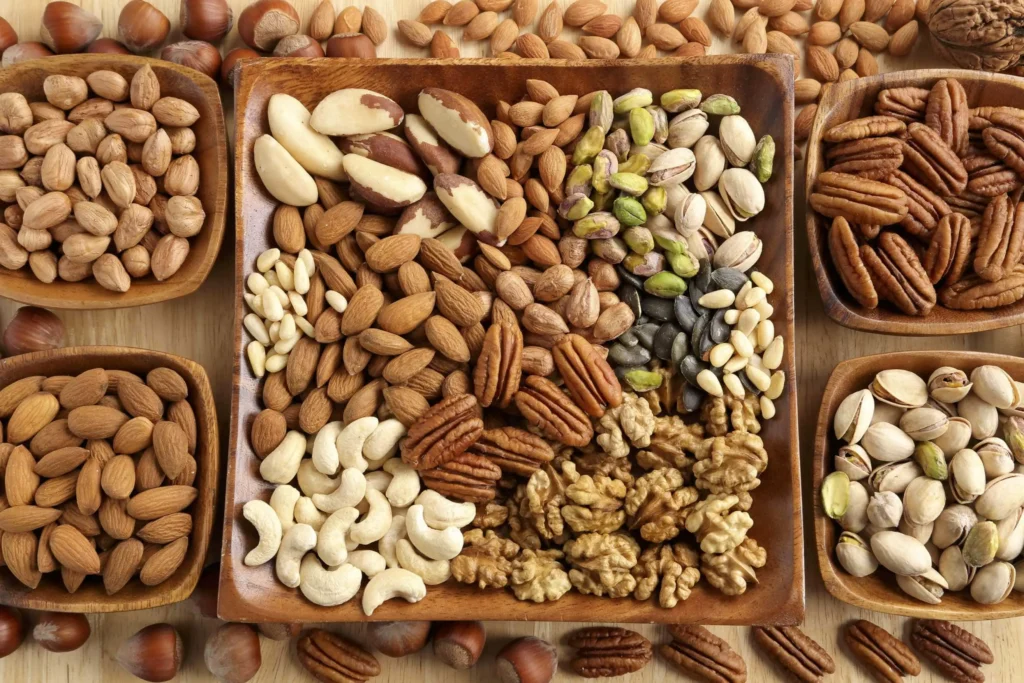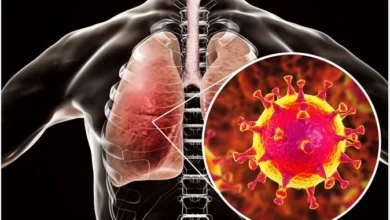Top 10 Foods to Lower Cholesterol Naturally

Maintaining healthy cholesterol levels is crucial for overall cardiovascular wellness, and making dietary adjustments can play a significant role in achieving this goal. Incorporating certain foods into your daily meals can help lower cholesterol Naturally and reduce the risk of heart disease. In this guide, we’ll explore the top 10 foods renowned for their cholesterol-lowering properties. From fiber-rich oats and legumes to heart-healthy fats found in nuts and avocados, these dietary choices offer a delicious way to promote heart health. Additionally, we’ll delve into the benefits of incorporating fatty fish for omega-3 fatty acids, olive oil for monounsaturated fats, and dark chocolate for antioxidants. By embracing these nutrient-rich foods, you can take proactive steps toward managing your cholesterol levels and optimizing your cardiovascular well-being.
1.Oats and Whole Grains

oats and whole grains into your diet can significantly benefit your cholesterol levels. The soluble fiber found in oats, barley, and whole grains forms a gel-like substance in the digestive tract, which helps reduce LDL cholesterol levels. Additionally, whole grains are rich in nutrients like magnesium and potassium, which support heart health by regulating blood pressure and improving blood vessel function. Including whole grain options such as brown rice, quinoa, and whole wheat bread in your meals can provide sustained energy and promote overall cardiovascular wellness.

Beans and Legumes:

Beans, lentils, and chickpeas are dietary powerhouses that offer numerous health benefits, including cholesterol management. These legumes are packed with soluble fiber, which binds to cholesterol in the digestive system and prevents its absorption into the bloodstream. Furthermore, beans and legumes are excellent sources of plant-based protein, making them ideal choices for individuals looking to reduce their intake of saturated fats from animal products. Regular consumption of beans and legumes can not only lower LDL cholesterol levels but also contribute to weight management and reduce the risk of developing chronic diseases like diabetes and hypertension.
Nuts:

Despite their calorie density, nuts such as almonds, walnuts, and pistachios can be part of a heart-healthy diet due to their favorable effects on cholesterol levels. These nuts are rich in unsaturated fats, including monounsaturated and polyunsaturated fats, which have been shown to lower LDL cholesterol when consumed in place of saturated fats. Additionally, nuts contain plant sterols, fiber, and antioxidants, all of which contribute to their cholesterol-lowering properties. While nuts are nutrient-dense foods, portion control is crucial to prevent excessive calorie intake. Incorporating a handful of nuts into your daily diet as a snack or adding them to salads and oatmeal can provide a satisfying and heart-healthy boost to your meals.
Fatty Fish:

Including fatty fish such as salmon, mackerel, and trout in your diet can have profound benefits for your cardiovascular health, primarily due to their high omega-3 fatty acid content. Omega-3 fatty acids, particularly EPA and DHA, are renowned for their ability to lower triglyceride levels, reduce inflammation, and improve blood vessel function. Consuming fatty fish regularly can raise HDL cholesterol, often referred to as “good” cholesterol, while lowering levels of triglycerides, a type of fat linked to heart disease. Moreover, incorporating fish into your meals provides high-quality protein and essential nutrients like vitamin D and selenium, further supporting overall health and well-being.
Avocado:

Avocado is a versatile fruit that offers numerous health benefits, including promoting healthy cholesterol levels. Rich in monounsaturated fats, avocados can help lower LDL cholesterol and triglyceride levels while increasing HDL cholesterol concentrations. Additionally, avocados are a good source of fiber, particularly soluble fiber, which aids in cholesterol management by reducing absorption in the intestine. The unique combination of healthy fats, fiber, and plant compounds in avocados makes them a valuable addition to a heart-healthy diet. Whether mashed into guacamole, sliced on toast, or blended into smoothies, incorporating avocados into your meals can contribute to improved cholesterol profiles and overall cardiovascular wellness.
Olive Oil:

Olive oil is a staple of Mediterranean cuisine and is celebrated for its numerous health benefits, including its positive effects on cholesterol levels. Rich in monounsaturated fats and antioxidants, particularly oleic acid and polyphenols, olive oil can help lower LDL cholesterol levels and reduce inflammation in the body. Substituting olive oil for saturated fats like butter or margarine in cooking and salad dressings can promote heart health and improve cholesterol profiles. Additionally, extra virgin olive oil, obtained through cold-pressing olives, retains the highest levels of beneficial compounds and is recommended for maximum health benefits. Incorporating olive oil into your culinary repertoire can enhance the flavor of dishes while supporting cardiovascular wellness.
Fruits and Berries:

Fruits and berries are nutritional powerhouses that offer a wide array of vitamins, minerals, fiber, and antioxidants, making them essential for maintaining optimal health, including cholesterol management. Certain fruits such as apples, grapes, strawberries, and citrus fruits are particularly beneficial for cholesterol levels due to their high soluble fiber content, which helps lower LDL cholesterol. Moreover, fruits and berries are naturally low in calories and sodium while being rich in water content, making them ideal choices for promoting satiety and hydration. Incorporating a variety of colorful fruits and berries into your diet not only adds sweetness and flavor to meals but also provides essential nutrients that support overall well-being.
Vegetables:

Vegetables are nutritional powerhouses that offer an abundance of vitamins, minerals, fiber, and antioxidants, all of which contribute to their cholesterol-lowering properties. Dark leafy greens such as spinach, kale, and Swiss chard are particularly beneficial due to their high fiber content and antioxidant capacity. Additionally, cruciferous vegetables like broccoli, Brussels sprouts, and cauliflower contain compounds called glucosinolates, which have been shown to support heart health and lower LDL cholesterol levels. By incorporating a variety of vegetables into your meals, you can increase your intake of essential nutrients while promoting satiety and reducing the risk of chronic diseases such as heart disease and diabetes.
Soy Products:

Soy products such as tofu, tempeh, and edamame are rich sources of plant-based protein and phytonutrients called isoflavones, which have been shown to have cholesterol-lowering effects. Isoflavones, particularly genistein and daidzein, can help reduce LDL cholesterol levels and improve the ratio of LDL to HDL cholesterol, thus lowering the risk of heart disease. Additionally, soy products are low in saturated fat and cholesterol, making them heart-healthy alternatives to animal-based protein sources. Incorporating soy products into your diet can be as simple as adding tofu to stir-fries, enjoying edamame as a snack, or incorporating tempeh into soups and salads.
Dark Chocolate:

Dark chocolate with a high cocoa content (70% or more) contains flavonoids, which are antioxidants that have been associated with numerous health benefits, including improved cholesterol levels. Flavonoids, particularly epicatechin, catechin, and procyanidins, can help increase HDL cholesterol levels, improve blood flow, and reduce inflammation in the body. Additionally, dark chocolate contains stearic acid, a type of saturated fat that does not raise cholesterol levels. While dark chocolate can be a delicious and indulgent treat, moderation is key due to its calorie density. Choosing dark chocolate with minimal added sugar and enjoying it in small portions can provide antioxidant benefits without compromising your health goals.
If you have any queries related to medical health, consult Subhash Goyal or his team members on this given no +91 99150 72372, +91 99150 99575, +918283060000



